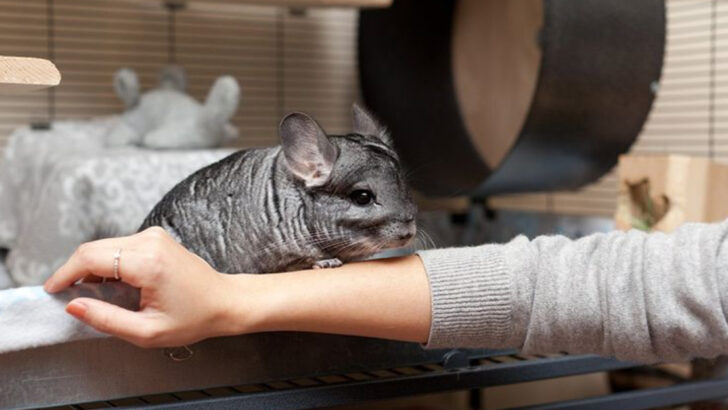Caring for chinchillas requires knowledge and attention to detail.
These adorable creatures demand specific care to ensure a joyful and fulfilling life.
From dietary needs to social interactions, every aspect of their environment plays a vital role in their well-being.
Whether you’re a seasoned chinchilla owner or a new enthusiast, these 12 expert tips will guide you in maintaining a healthy and happy chinchilla.
Embrace these insights to enhance your pet’s life and ensure that they thrive in their cozy home.
Let’s explore the essential aspects of chinchilla care.
Proper Diet Maintenance
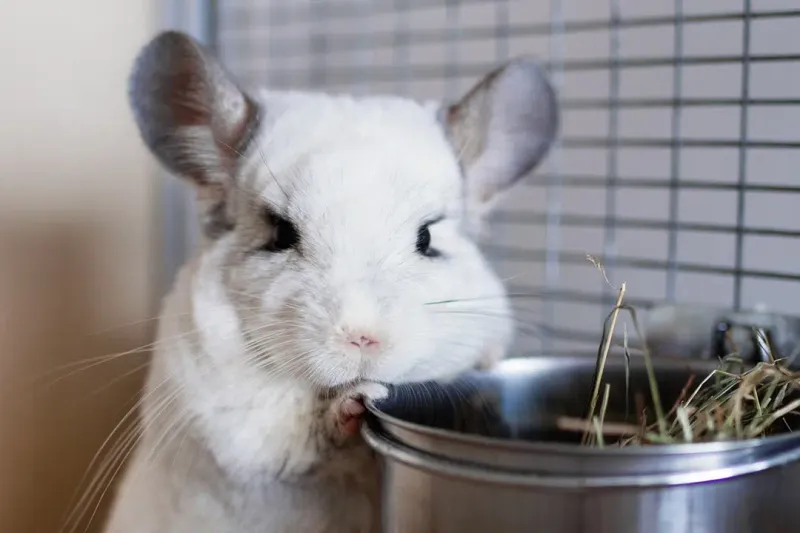
A chinchilla’s diet must be rich in fiber, mainly sourced from fresh hay. Providing quality pellets ensures they get essential nutrients.
Fresh vegetables can be included in moderation, adding variety and vitamins. Avoid feeding them sugary or fatty foods, as these can lead to obesity and health issues. It’s crucial to keep their food free from pesticides and chemicals.
Regularly cleaning their food bowls prevents contamination. Maintaining a proper diet not only enhances their health but also keeps them active and happy. Consider consulting a veterinarian for personalized dietary advice.
Optimal Housing Conditions
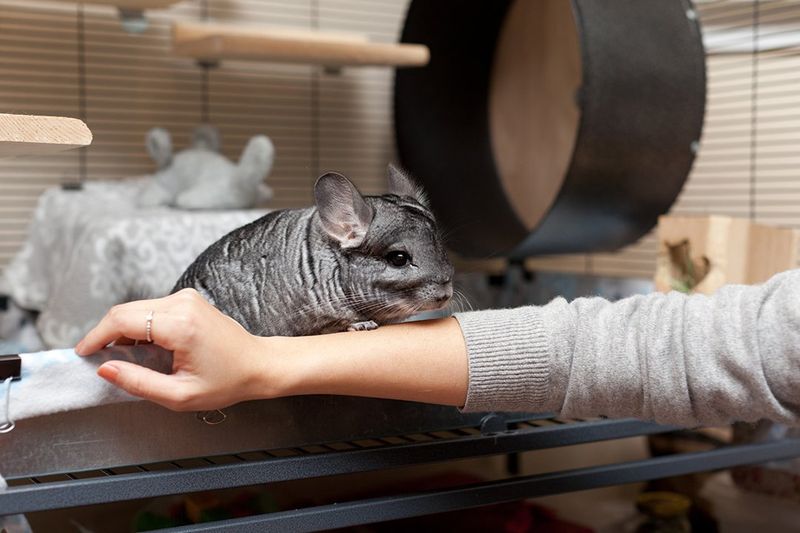
Chinchillas require spacious cages with multiple levels to climb and explore. Wire cages with solid bases are preferred to provide stability.
Include toys, chew objects, and hiding spots to stimulate their curiosity and natural instincts. Avoid direct sunlight exposure and keep the temperature stable, as chinchillas are sensitive to heat. Regular cleaning is essential to prevent disease.
Providing soft bedding will add comfort and warmth. Creating an engaging and secure environment reduces stress and promotes a lively spirit. Investing in a quality cage is a step toward a happy and healthy chinchilla.
Social Interaction
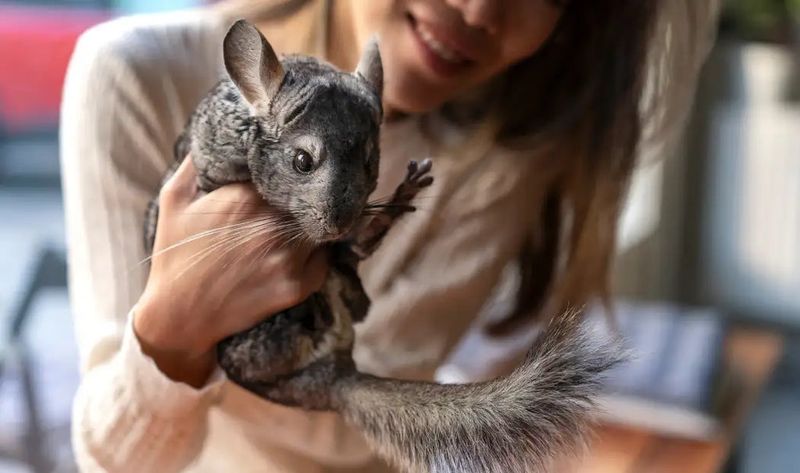
Chinchillas are social creatures and thrive on interaction. Engage them with gentle handling and playtime, allowing them to bond with you.
Introducing them to other chinchillas can satisfy their social needs, but monitor the interaction closely. Handling them with care and speaking softly builds trust and connection. Avoid sudden movements or loud noises, as they may cause anxiety.
Regular interaction enhances their mental well-being and keeps them cheerful. Creating a loving relationship with your chinchilla enriches both their life and yours. Remember, patience and tenderness are key to a successful bond.
Regular Exercise
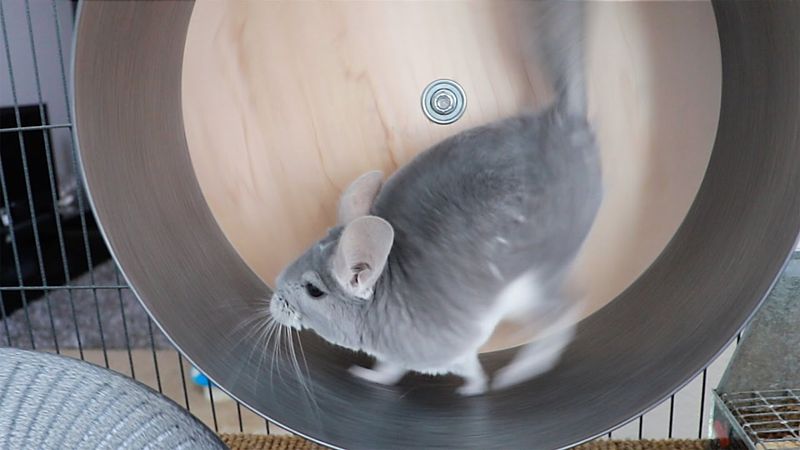
Exercise is vital for a chinchilla’s physical health. Providing an exercise wheel in their cage allows them to burn energy and maintain a healthy weight.
Ensure the wheel is solid and safe, with no spokes, to prevent injury. Allowing them supervised time outside the cage gives them the freedom to explore and play. Creating a safe, chinchilla-proof area ensures they stay secure during playtime.
Regular exercise contributes to their happiness and reduces stress. It also fosters a playful and active demeanor. Encourage exercise to keep your chinchilla lively and content.
Bathing with Dust
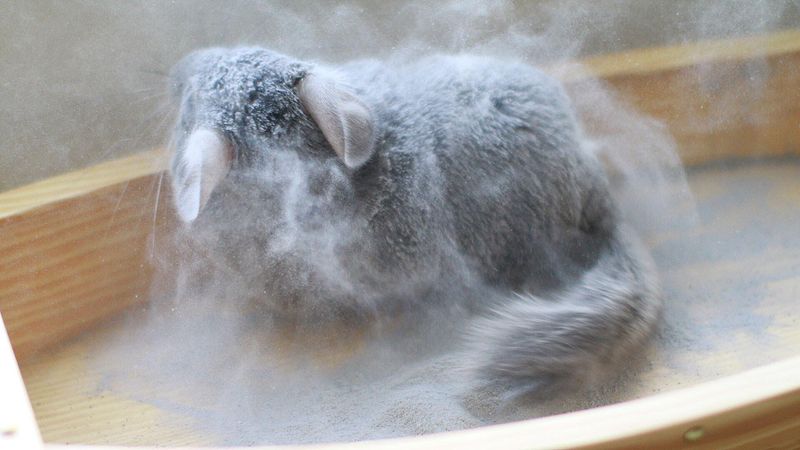
Chinchillas clean themselves using dust baths, not water. Offering dust baths two to three times a week helps them maintain clean and healthy fur.
Use chinchilla-specific dust, placing it in a shallow container. Allow them to roll and frolic freely, as it removes dirt and oils. Never use water, as their dense fur takes a long time to dry, risking fungal infections.
Dust baths cater to their natural grooming instincts and promote a clean, fluffy appearance. It’s a joy to watch them indulge in this unique bathing ritual. Ensure they have regular access to dust baths.
Dental Health Care
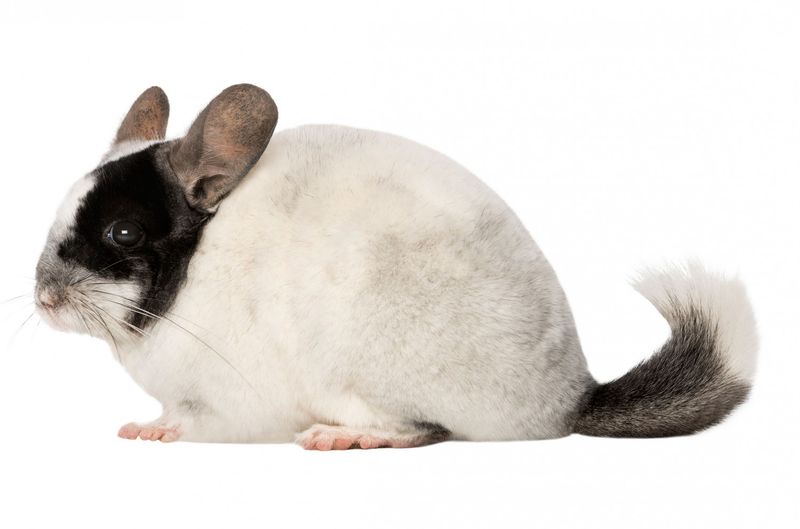
Chinchillas have continuously growing teeth, necessitating constant chewing. Providing chew toys made of safe materials helps wear down their teeth naturally.
Wooden toys, pumice stones, and hay blocks are excellent options. Regularly checking their teeth for overgrowth is vital to prevent dental issues. Signs of dental problems include drooling, loss of appetite, or facial swelling.
Consulting a veterinarian for regular check-ups ensures any problems are addressed promptly. Maintaining dental health is crucial for overall well-being and enjoyment. A chinchilla with healthy teeth is a happy chinchilla.
Temperature Regulation
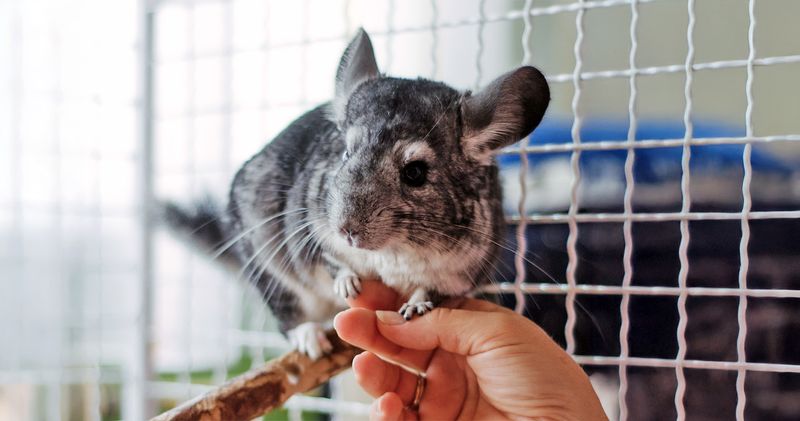
Chinchillas are sensitive to heat and require a cool environment. Maintaining a temperature between 60°F and 70°F prevents overheating.
Provide proper ventilation and avoid direct sunlight exposure. Fans or air conditioning can help regulate the temperature but avoid direct drafts. Monitoring the room’s climate ensures their comfort and health. Signs of overheating include lethargy, panting, or red ears.
Immediate cooling is necessary if these symptoms occur. Proper temperature control keeps your chinchilla calm and minimizes stress. Enjoying a stable and comfortable climate fosters their overall happiness.
Vet Check-ups
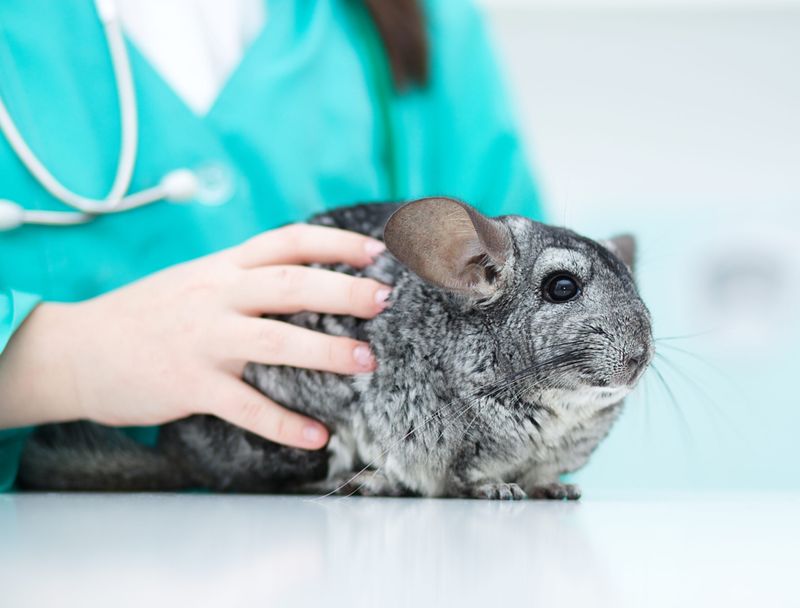
Regular veterinary visits are essential for maintaining a chinchilla’s health. Scheduling check-ups at least once a year helps detect any underlying issues early.
A vet experienced with exotic pets can provide specialized care. They will assess diet, dental health, and overall condition. Vaccinations and preventive measures are typically unnecessary but discussing these with a vet ensures comprehensive care.
Regular check-ups provide peace of mind and ensure your pet’s well-being. A healthy chinchilla is one that’s regularly monitored by a professional. Invest in their health through regular veterinary visits.
Mental Stimulation

Keeping a chinchilla mentally stimulated prevents boredom and enhances their well-being. Puzzle toys and interactive games challenge their minds and encourage problem-solving.
Rotate toys regularly to maintain interest and engagement. Providing various textures and shapes keeps their curiosity alive. Mental stimulation contributes to their happiness and prevents destructive behaviors. Observing their playful interactions can be a delightful experience.
Invest time in creating an enriching environment that caters to their natural inquisitiveness. A mentally stimulated chinchilla is a joyful and thriving companion.
Hydration & Water Quality
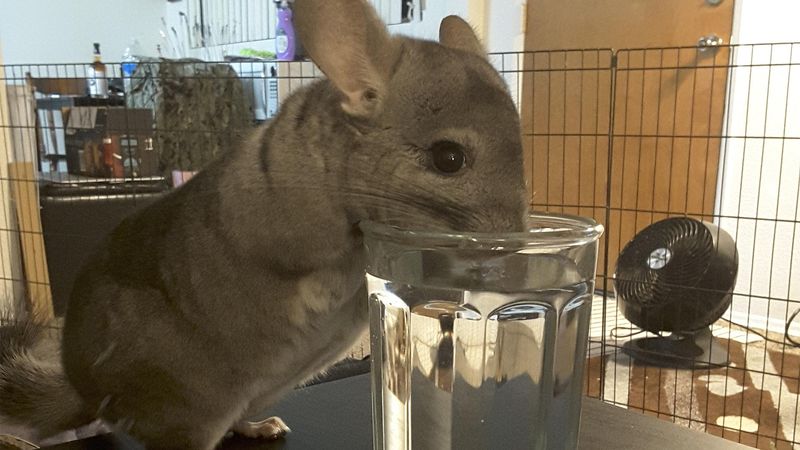
Proper hydration is crucial for a chinchilla’s health. Provide fresh and clean water daily, using a water bottle with a stainless-steel spout.
Ensure the bottle’s cleanliness by regularly washing it to prevent bacteria. Monitor their water intake, as sudden changes may indicate health issues. Avoid using bowls, as they can easily become contaminated. Access to clean water supports digestion and overall vitality.
Hydration is fundamental to keeping your chinchilla energetic and well. A consistent supply of quality water is an essential aspect of responsible chinchilla care.
Safe Environment
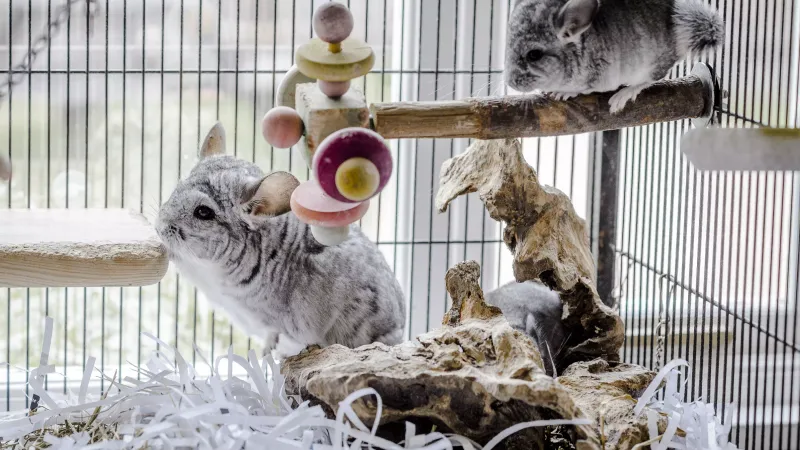
Creating a safe environment is paramount for a chinchilla’s well-being. Ensure their play area is free from electrical cords, toxic plants, or small objects.
Supervised playtime in a chinchilla-proofed area allows them to explore without risk. Securing windows and doors prevents escape attempts. Regularly inspect their habitat for wear or damage. A safe environment encourages exploration and natural behaviors.
Providing security and freedom within their space nurtures their adventurous spirit. A well-considered environment is a cornerstone for a happy and thriving chinchilla.
Understanding Behavior
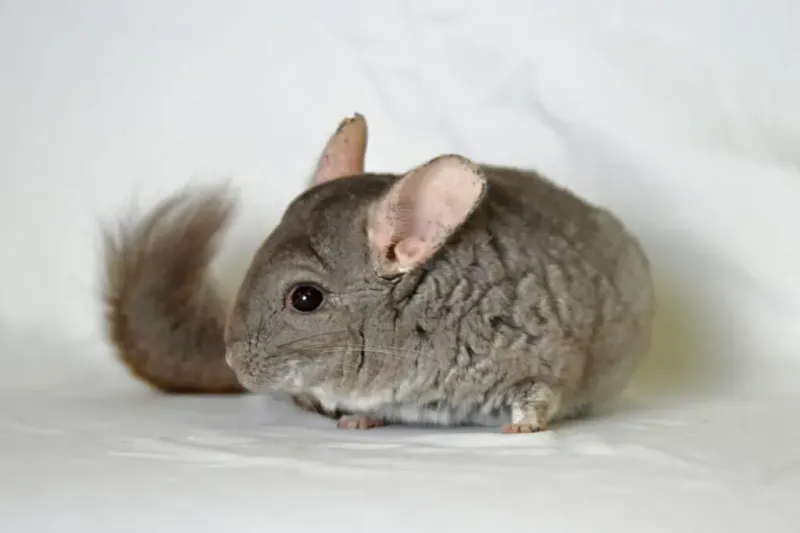
Recognizing and understanding your chinchilla’s behavior can enhance your relationship. Signs of happiness include bright eyes, alert posture, and playful activities.
Understanding their body language and vocalizations helps in responding to their needs. Timid or withdrawn behavior may indicate stress or illness. Adapting to their unique quirks and preferences fosters trust and companionship.
Observing their behavior is key to unlocking a rewarding bond. Communicating through their unique language enriches your connection. A deep understanding of their behavior leads to a joyful and fulfilling relationship.

